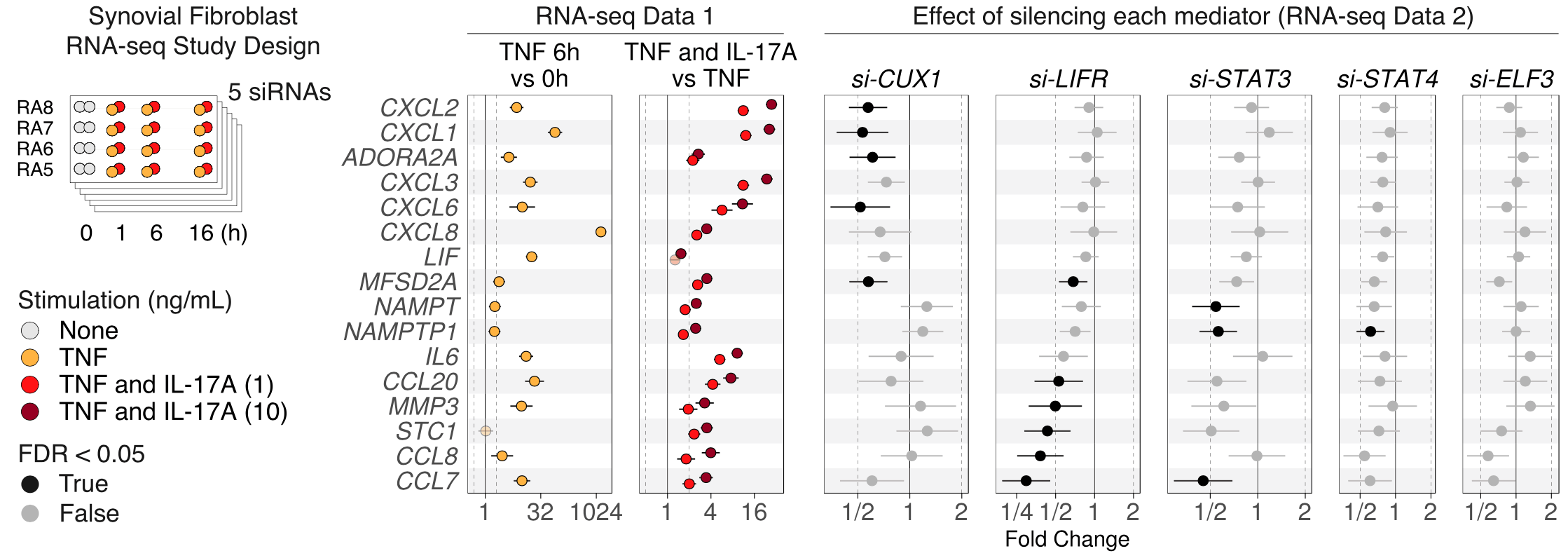CUX1 and IκBζ (NFKBIZ) mediate the synergistic inflammatory response to TNF and IL-17A in stromal fibroblasts
Kamil Slowikowski*, Hung N. Nguyen*, Erika H. Noss, Daimon P. Simmons, Fumitaka Mizoguchi, Gerald F. M. Watts, Michael F. Gurish, Michael B. Brenner, and Soumya Raychaudhuri
PNAS, 2020. DOI: 10.1073/pnas.1912702117
View the data PDF PubMed Data GitHub

Abstract
The role of stromal fibroblasts in chronic inflammation is unfolding. In rheumatoid arthritis, leukocyte-derived cytokines TNF and IL-17A work together, activating fibroblasts to become a dominant source of the hallmark cytokine IL-6. However, IL-17A alone has minimal effect on fibroblasts. To identify key mediators of the synergistic response to TNF and IL-17A in human synovial fibroblasts, we performed time series, dose-response, and gene-silencing transcriptomics experiments. Here we show that in combination with TNF, IL-17A selectively induces a specific set of genes mediated by factors including cut-like homeobox 1 (CUX1) and IκBζ (NFKBIZ). In the promoters of CXCL1, CXCL2, and CXCL3, we found a putative CUX1-NF-κB binding motif not found elsewhere in the genome. CUX1 and NF-κB p65 mediate transcription of these genes independent of LIFR, STAT3, STAT4, and ELF3. Transcription of NFKBIZ, encoding the atypical IκB factor IκBζ, is IL-17A dose-dependent, and IκBζ only mediates the transcriptional response to TNF and IL-17A, but not to TNF alone. In fibroblasts, IL-17A response depends on CUX1 and IκBζ to engage the NF-κB complex to produce chemoattractants for neutrophil and monocyte recruitment.